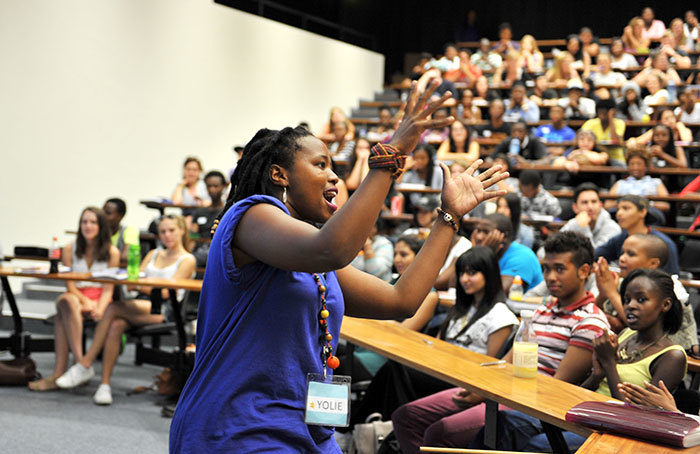Who narrates the reality of students?
29 October 2014 | Story by Newsroom
In an institution such as UCT, where there are diverse student views and different student realities, it is important to analyse who narrates these realities and who tells these stories on a daily basis. It is also important to consider who formulates ideas, who starts the discourse around student issues, and how inclusive this discourse is.
It is important to consider who is speaking on behalf of students on a university-policy level. For a master's student like me, it's difficult to understand why many students' realities are overlooked; and why so many choose to remain silent in the face of this.
From an outside perspective it's very easy to see how the views of the majority of the students could get lost in the bureaucratic system that is UCT. Every year around this time we vote in student leadership, who are chosen as our representatives and our voices on a range of issues, from policy to the way we are taught.
With increasing levels of apathy among students, we have to question whether the majority of students are actually seeking out the resources to inform themselves around policy and leadership, or are merely getting by, getting a degree and moving on. Furthermore, I would argue that students are extremely individualistic, and not concerned about the well-being of the UCT student community. Sadly, many students only increase their interest in policy and leadership when it affects them directly, or when they are in a crisis.
At a university such as UCT, with students and academics from all over South Africa and the world, you would expect there to be an extremely high level of discourse on a diverse range of topics, expressing a diverse range of views. However, when it comes to the expression of views and the selection of leadership, many people are too afraid to take a stand publicly and express their viewpoints.
There is a lack of public discourse around student leadership, and this has been a constant cause of frustration for me. When it comes to election time, students form alliances or join politically-affiliated bodies who all present a unified set of manifesto ideas, often taken from their mother party's manifesto. In addition to offering us few unique student solutions to student problems, these manifestos do not cater for the actual needs of the student body. This leaves us with little opportunity to interrogate their ideas, and even fewer options in the form of unique solutions to some of the toughest student problems.
Even more concerning is the fact that there is no outcry from students over the lack of diversity in views among our leadership. There are no student voices calling for greater accountability from our leaders, and there are no student voices calling for a better process for electing these leaders. Considering the central role the UCT student body played in the struggle against apartheid, the silence of today's students is deafening.
Many people bemoan the fact that at UCT it often feels as though we deal with the same problems every year '“ and the truth is that we do. With each change in leadership, old problems are re-hashed and attempts made at solving them. However, until we have innovative, independent student leaders with unique solutions, we will never have a truly diverse UCT.
Written by Dean Horwitz. First published in the Varsity newspaper. Photo by Raymond Botha.
 This work is licensed under a Creative Commons Attribution-NoDerivatives 4.0 International License.
This work is licensed under a Creative Commons Attribution-NoDerivatives 4.0 International License.
Please view the republishing articles page for more information.










